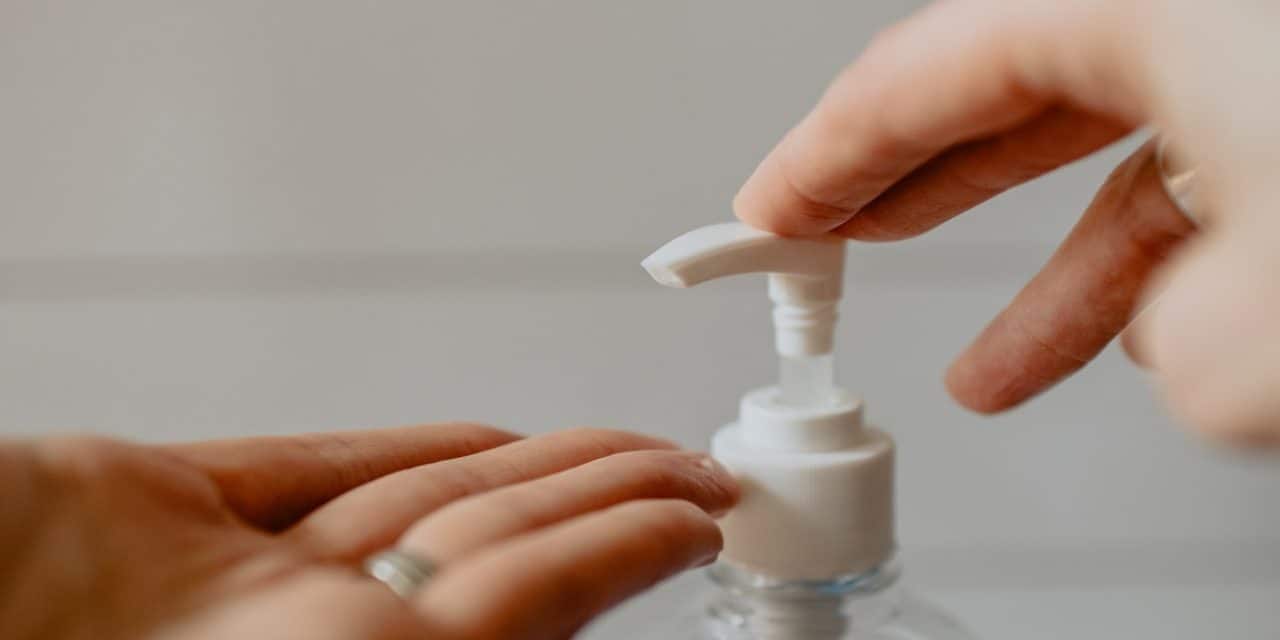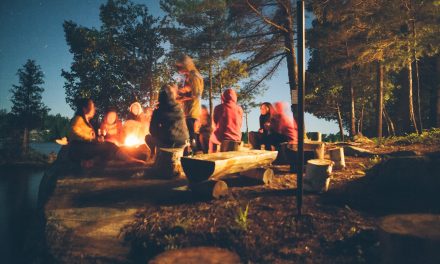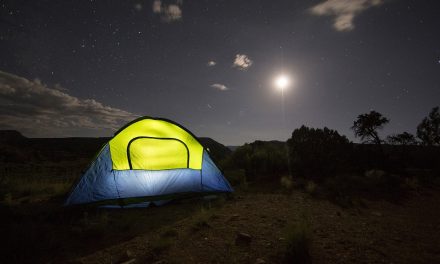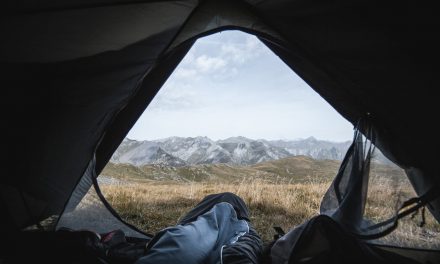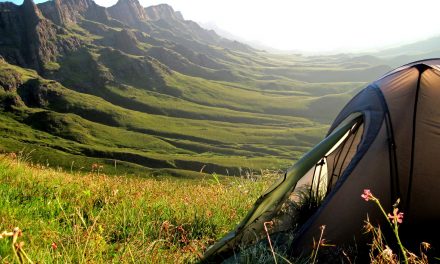The great outdoors gives you a chance to connect with nature and appreciate your surroundings with just a few essentials. The time you spend camping and hiking can take a toll on your personal hygiene. A ‘woodsy musk’ may be a badge of honor, however, it may not go down well with your tent mates.
Some basic planning and a little know-how can help you maintain good hygiene when hiking and camping. I have some tricks to help you shower with minimal water supply, conserve the clothes you have on your trip, and do your business in the woods.
Pick Your Camping Clothing Carefully
Maintaining clean clothes while camping and backpacking can seem like a real challenge. Almost like asking children to stay away from the cake at a birthday party. Being out in the woods can be your one chance to really get filthy, but it does not mean you have to stay that way.
First, we will tackle the clothes that you pack for a camping trip. Clothes made from cotton material are a total no-no. As much as cotton may seem soft and breathable, it not only ends up being heavy when drenched in sweat, but it is also poor at regulating temperature.
Moisture-wicking synthetic fabrics are your best bet. They are fast-drying materials, meaning you will not feel clammy after sweating up a hill. Synthetic fabrics will not steal your body heat and bacteria have little to no chance of finding breeding space.
Pack in Doubles
Now that you know what clothing material to pack, you need to have at the very least, two of everything. Two wicking t-shirts, two pairs of hiking shorts or pants, two pairs of socks, and two pairs of underwear. This way, on a two-day trip, you can have something clean to change into. It never hurts to add on the underwear and socks. Recycling dirty underwear and socks will create a nasty whiff, leaving you alienated from your camping buddies.
With the second set of clothing, you can wash what you wore while hiking during the day and let it dry overnight. Even if they do not dry, you will still have an extra set of clean clothes for the morning. No matter how long your trip takes, you can wash and rotate your clothes, and not worry about being the ‘stinky’ of the pack.
Wardrobe Dos and Don’ts
If space allows for it, have specific sleeping attire. Do not go to sleep in the clothes you hiked in all day. They may have your body heat, but they also increase the odds of you developing nasty rashes and skin problems. Sleeping in mucky clothes will also reduce the life of your sleeping bag.
Never wear damp socks. Dry your feet, especially in between your toes before putting on socks. Dry wet boots at night. Do not leave leather boots in the sun because they will shrink. Wear flip-flops when showering in public camp showers. They are a breeding ground for foot fungal disease.
Shower Hour
Getting naked to clean your body while camping may be fun for some, but it is not something for everyone. Things get tricky when you are in a large group of people, or with minimal access to water. However, going for more than 4 days without cleaning your important bits is not very hygienic. Depending on your surroundings, we have three options you can do to keep your body relatively clean while camping or hiking.
Take A Dip
If you happen to be camping or hiking by a creek or lake, jump in. This is your chance to cool off while you rid your body of dirt and sweat. Do not use soap in the water where people are camping, fishing, or collecting water. Also, make sure it is a flowing river or lake. There is a higher chance of harmful bacteria in stagnant water.
Splash Out on A Camping Shower Bag
This is a great investment for any avid camper. It is a bag with a hose attached to it. You fill it up with water, leave it in the sun to get warm, hang it on a tree branch, and ta-dah, you have your outdoor shower.
Wipe It Down
In the event that water is scarce, or you are camping in winter, a sponge bath is your best option. You could warm some water on the fire pit and use a bandana or a camp towel to wipe down the important areas. Baby wipes or bio wipes also work well. Pay attention to the face, underarms, lower legs, feet, and groin area to prevent chafing and fungus.
Pack A Hygiene Kit
Your list of essentials should always include a small bag to keep your toiletries in while camping or hiking. Have a travel toothbrush and toothpaste in this bag. Bring along some dental floss that can double up as string when you need it.
Never use regular hand or dish soap to shower in the bush. These promote the growth of algae blooms in streams or lakes. Have your shower at least 200 meters from your source of water or campsite.
For the ladies, have your preference for feminine hygiene products and disposable Ziploc bags in the hygiene kit. It makes them easier to locate during those critical moments. Leave the fruity shampoos at home and stick to biodegradable, unscented, phosphate-free shampoo, and body wash. You do not want to attract bugs and bears.
Cherish Your Hand Sanitizer
You know how you always have your cell phone near you? This is how you should treat hand sanitizer when hiking and camping. Always have a small bottle of alcohol-based hand sanitizer near you. A small dollop of this magical gel kills germs on contact, wipes away bacteria and grime, and helps prevent hand to mouth infections.
Everyone should use hand sanitizer before dipping into the communal trail mix to avoid ingesting bacteria. Use it before cooking or eating. Squirt and rub hand sanitizer after every bathroom break. It can also be used to disinfect utensils, especially if the water is in short supply.
Hygiene Tips When Nature Calls
Always have a backpacker’s trowel on hand. You never know when a number 2 call may take its course. Pick your location at least 200 feet from any water source. Dig a hole at least 15 cm (6 inches) deep. Squat over it, do your business, and wipe with moist towelettes. Always cover up your donation with leaves, pine needles or a heavy rock to prevent someone from stepping on it or animals digging it up.
If you are using a portable camp toilet, get rid of your deposits ONLY at a designated waste dump plant. Do not bury toilet paper. Place used loo roll in a waste Ziploc bag and dispose of it properly.
As much as being outdoors may seem like the perfect excuse to look and smell like a caveman, take it as a challenge to be responsible and remain creatively clean. At the very least, it will prevent fellow campers from making comments like, “Goodness gracious, what is that smell?”
- Hammock Benefits: What The Tent Industry Doesn’t Want You Knowing - November 19, 2022
- How I Maintain My Hygiene When Camping - November 19, 2022
- How to Survive a Meet & Greet with a Bear - November 18, 2022

